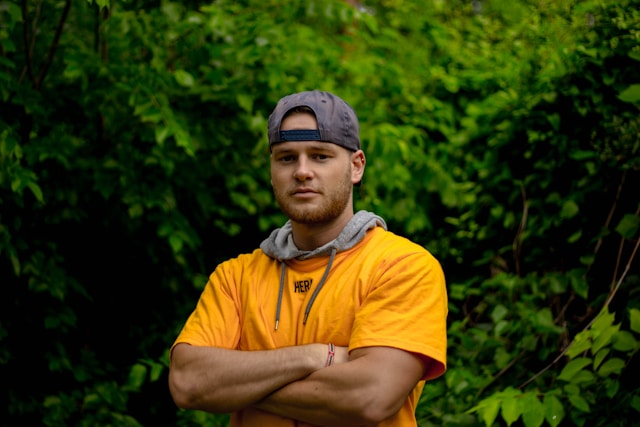If you’re someone who wears your heart on your sleeve, chances are you’ve experienced your fair share of heartbreak and pain over the years.

While no one should ever tell you to change who you are, it’s certainly important to take steps to protect yourself from getting hurt so easily. Here are some practises you might put in place to help keep your heart safe.
1. Set realistic expectations for your relationships.

We often get hurt because we expect too much from people. Maybe you thought your best mate would remember your birthday without a reminder, or you assumed your partner would know exactly what you wanted for your anniversary. Setting more realistic expectations can help prevent disappointment. People aren’t mind readers, and they’ll sometimes let you down — not because they don’t care, but because they’re human too.
2. Learn to differentiate between constructive criticism and personal attacks.

It’s easy to feel hurt when someone points out your flaws or mistakes, but not all criticism is created equal. Try to recognise when someone is genuinely trying to help you improve, rather than attacking you personally. If your boss suggests ways to up your presentation skills, they’re probably not trying to hurt you — they’re trying to help you grow professionally.
3. Practise self-validation instead of looking for it from other people.

Start recognising your own achievements and positive qualities, without waiting for someone else to point them out. Did you nail that work project? Give yourself a mental pat on the back. Proud of how you handled a tricky situation? Acknowledge it. The more you validate yourself, the less vulnerable you’ll be to other people’s opinions.
4. Develop a growth mindset.
 Source: Unsplash
Source: Unsplash It sounds like some kind of corporate buzz word, but it’s actually super effective. Seeing failures and setbacks as opportunities for growth rather than personal failures can help protect you from getting hurt. If you don’t get that job you wanted, instead of thinking “I’m not good enough,” try “What can I learn from this experience to improve my chances next time?”
5. Build a strong support system.

Having a solid group of friends or family members you can rely on can provide a buffer against the tough stuff in life. When you have people who genuinely care about you, it’s easier to bounce back from disappointments or rejections. Just make sure you’re not putting all your emotional eggs in one basket — diversify your support system.
6. Practise emotional detachment in certain situations.

This doesn’t mean becoming cold or unfeeling. It’s about learning to step back and view situations objectively, especially in professional or casual social settings. If a colleague makes a snide remark, try to consider it logically rather than emotionally. Is their opinion really that important? Probably not.
7. Develop your self-confidence.
 Source: Unsplash
Source: Unsplash The more confident you are in yourself, the less likely you are to be hurt by other people’s actions or words. This doesn’t happen overnight, but small steps can help. Set achievable goals and celebrate when you reach them, and remind yourself of your strengths regularly.
8. Learn to let go of things you can’t control.
 Source: Unsplash
Source: Unsplash A lot of hurt comes from trying to control things that are simply out of our hands. You can’t control how other people behave or what they think of you. Focusing on what you can control — your own actions and reactions — can help you feel less hurt.
9. Practise mindfulness more often.

Mindfulness can help you become more aware of your emotional reactions and give you the space to choose how to respond. When you feel hurt, take a moment to pause and breathe. Notice the feeling without judgment. This can help prevent you from spiralling into negative thoughts and emotions.
10. Set and maintain healthy boundaries.
 Source: Unsplash
Source: Unsplash Many of us get hurt because we let people cross our boundaries. Learn to say no when you need to, and don’t feel guilty about it. It’s okay to put yourself first. In fact, you should! Setting clear boundaries in your relationships can prevent a lot of potential hurt down the line.
11. Try to avoid overthinking and ruminating.
 Source: Unsplash
Source: Unsplash Replaying hurtful situations over and over in your mind only amplifies the pain. If you’re always dwelling on something that hurt you, try to distract yourself with a positive activity. Go for a walk, call a friend, or dive into a hobby. Breaking the cycle of rumination can help reduce the impact of hurtful experiences.
12. Show yourself a bit of compassion.
 Source: Unsplash
Source: Unsplash Often, we’re our own harshest critics. When something goes wrong, we tend to beat ourselves up about it. Instead, try treating yourself with the same kindness you’d show a good friend. Accept that everyone makes mistakes and has difficult experiences. That makes the pain a bit easier to swallow.
13. Focus on personal growth rather than comparison.
 Source: Unsplash
Source: Unsplash Someone will always seem to be doing better than you in some aspect of life. Instead, focus on your own personal growth. Are you better than you were yesterday? Last month? Last year? That’s what really matters.
14. Remember that most things aren’t personal.
 Source: Unsplash
Source: Unsplash Often, the things that hurt us aren’t actually about us at all. If someone is rude to you, it’s probably more about their bad day than anything you’ve done. If you don’t get invited to a party, it might be about limited space rather than a personal slight. Remembering that most people are caught up in their own lives and problems can help you take things less personally and protect yourself from unnecessary pain.




